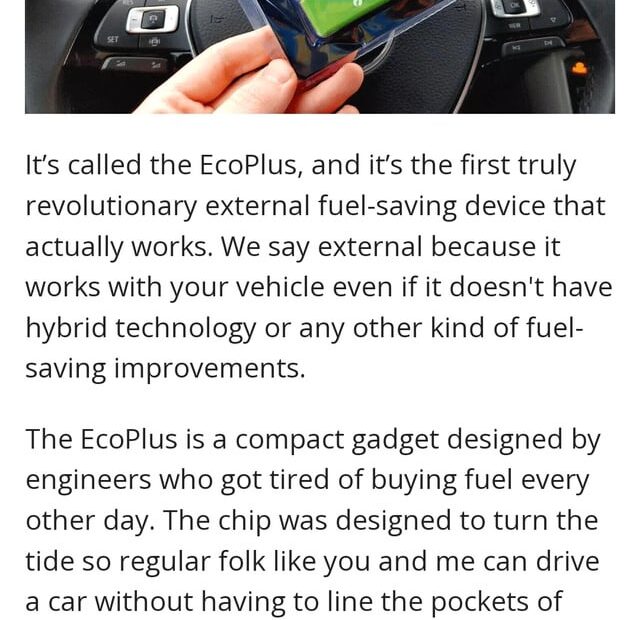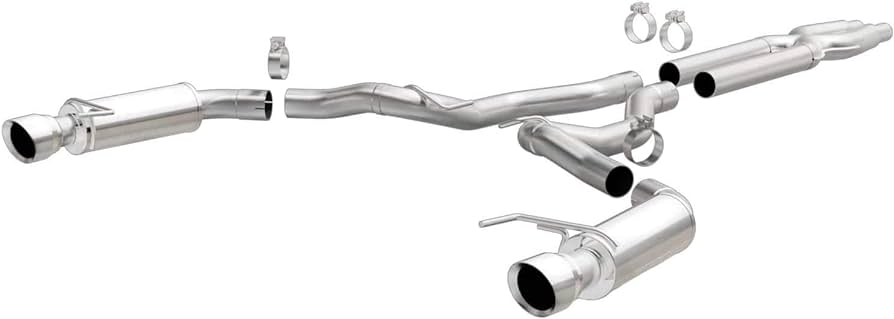Tuning for fuel efficiency can help you save on gas. By making small adjustments to your vehicle, you can maximize your mileage and reduce your fuel consumption, ultimately saving you money at the pump.
In today’s world, where gas prices seem to be constantly on the rise, finding ways to save on fuel has become more important than ever. One often overlooked method is tuning your vehicle for fuel efficiency. By making simple modifications to your car’s engine and optimizing its performance, you can significantly increase your mileage and save money on gas.
This not only benefits your wallet but also the environment, as it reduces harmful emissions. There are various steps you can take to tune your car for better fuel efficiency. From keeping your tires properly inflated to using the recommended motor oil, every little adjustment can add up to significant savings. We will explore some of the most effective tuning techniques that can help you get the most out of every drop of fuel. So, if you’re ready to start saving on gas, read on to discover how you can tune your vehicle for optimal fuel efficiency.
Fuel Efficient Driving Techniques
Fuel efficient driving techniques can significantly reduce your fuel consumption and help you save money on gas. By making a few simple adjustments to your driving habits, you can maximize your vehicle’s fuel efficiency and reduce your carbon footprint. In this section, we will explore some effective techniques that can help you achieve optimal fuel economy.
Use Smooth Acceleration And Braking
Smooth and gradual acceleration can dramatically improve your vehicle’s fuel efficiency. Avoid stomping on the accelerator pedal as it consumes more fuel in a short period of time. Instead, gently press the accelerator pedal to gradually increase the speed. Similarly, sudden and harsh braking not only increases wear and tear on your vehicle’s brakes but also wastes fuel.
To improve fuel efficiency, try to anticipate traffic flow and adjust your speed accordingly. This way, you can avoid unnecessary acceleration and sudden braking, allowing your vehicle to maintain better fuel economy. Additionally, maintaining a safe distance from the vehicle in front of you gives you more time to react, reducing the need for sudden braking and acceleration.
Maintain A Steady Speed On The Highway
Driving at a consistent speed on the highway is one of the most effective ways to optimize fuel efficiency. When your speed varies frequently, your vehicle has to work harder to adjust to the changing conditions, which leads to increased fuel consumption.
To maintain a steady speed, utilize cruise control when driving on highways. Cruise control helps keep your vehicle’s speed constant, minimizing fluctuations and ensuring a more fuel-efficient journey. However, be mindful of the traffic around you and switch off the cruise control when necessary, such as in heavy traffic or changing road conditions.

Credit: www.ge.com
Importance Of Regular Vehicle Maintenance
The importance of regular vehicle maintenance cannot be overstated when it comes to fuel efficiency. Keeping your car in good working condition not only ensures a smoother and safer driving experience but also helps you save on gas. By paying attention to the little details and performing simple maintenance tasks, you can optimize your fuel efficiency and make every drop of fuel count.
Regularly Check And Replace Air Filters
One often overlooked aspect of vehicle maintenance that has a significant impact on fuel efficiency is the air filter. The air filter prevents dust, dirt, and other particles from entering your engine and can become clogged over time. A clogged air filter restricts the flow of air and forces your engine to work harder, burning more fuel in the process.
To ensure your air filter is clean and functioning properly, it is recommended to check and replace it regularly. Most manufacturers recommend replacing the air filter every 12,000 to 15,000 miles, or as advised in your car’s owner manual. This simple maintenance task not only improves fuel efficiency but also enhances engine performance and extends its lifespan.
Keep Tires Properly Inflated
Tire maintenance plays a crucial role in fuel efficiency. When your tires are underinflated, they create more rolling resistance, which means your engine has to work harder to move the vehicle forward. This increased resistance leads to higher fuel consumption and decreased fuel efficiency.
To ensure your tires are properly inflated, it is essential to check their pressure regularly. Refer to your car’s owner manual or the sticker on the driver’s side door jamb for the recommended tire pressure. Use a reliable tire pressure gauge to check the pressure and add or release air as needed. By maintaining the correct tire pressure, you can reduce fuel consumption, improve handling, and optimize fuel efficiency.
Regular vehicle maintenance is crucial in maximizing fuel efficiency. By regularly checking and replacing air filters as well as keeping your tires properly inflated, you can significantly reduce fuel consumption and save on gas. These simple yet important maintenance tasks not only benefit your wallet but also contribute to a greener and more sustainable driving experience.
The Role Of Engine Tuning In Fuel Efficiency
When it comes to saving money on gas, optimizing your engine for fuel efficiency is a smart move. One of the most effective ways to achieve this is through engine tuning. Engine tuning refers to the process of fine-tuning the various components of the engine to maximize performance while minimizing fuel consumption. By making adjustments to the engine’s air-fuel mixture, ignition timing, and other crucial parameters, engine tuning can significantly improve fuel efficiency, helping you save money in the long run.
How Engine Tuning Affects Fuel Consumption
Optimizing your engine for fuel efficiency can have a profound impact on fuel consumption. Here’s a closer look at how engine tuning affects the amount of fuel your vehicle consumes:
One of the key aspects of engine tuning involves adjusting the air-fuel mixture. A properly balanced mixture ensures just the right amount of fuel is combined with air for combustion. Too much fuel can result in wastage, while too little can lead to poor performance. By fine-tuning this balance, engine tuning can optimize fuel consumption.
2. Optimizing ignition timing:Ignition timing plays a crucial role in engine performance and fuel efficiency. By precisely timing the spark that ignites the air-fuel mixture, engine tuning can ensure maximum energy extraction from the fuel. This not only improves power but also reduces fuel consumption by burning the fuel more efficiently.
3. Enhancing engine airflow:Improving airflow is another essential aspect of engine tuning. By optimizing the intake and exhaust systems, engine tuning can minimize restrictions and increase the amount of air that enters the engine. With a healthier airflow, the engine can operate more efficiently, reducing the amount of fuel needed to produce power.
Benefits Of Optimizing The Engine For Efficiency
Optimizing your engine for fuel efficiency through tuning offers several significant benefits:
1. Cost savings:- Reduced fuel consumption means spending less money at the pump.
- Over time, the savings add up, helping you cut down on your expenses.
- Improved fuel efficiency leads to lower carbon emissions.
- By reducing your vehicle’s environmental footprint, you contribute to a cleaner and healthier planet.
- Engine tuning not only saves fuel but also improves overall performance.
- With optimized engine parameters, you’ll experience smoother acceleration and better responsiveness.
In conclusion, engine tuning plays a crucial role in achieving fuel efficiency. By adjusting the air-fuel mixture, optimizing ignition timing, and enhancing engine airflow, engine tuning can significantly reduce fuel consumption. The benefits of optimizing your engine for efficiency include cost savings, reduced environmental impact, and enhanced performance.
Choosing The Right Fuel For Maximum Efficiency
Increase your vehicle’s fuel efficiency by choosing the right fuel and tuning for maximum efficiency. Save on gas and cut costs with these effective tips.
The Impact Of Using Different Grades Of Fuel
Choosing the right fuel for your vehicle can have a significant impact on its fuel efficiency. The different grades of fuel available in the market can affect both your engine’s performance and your wallet. Let’s explore the impact of using different fuel grades:
1. Regular Unleaded Fuel: This is the most common and widely available fuel grade. It is suitable for most vehicles without high-performance engines. Regular unleaded fuel typically has an octane rating of 87, which is sufficient for the average commuter car. It provides a balance between fuel efficiency and cost-effectiveness.
2. Mid-Grade Fuel: Mid-grade fuel usually has an octane rating between 88 and 90. It offers a slight boost in performance compared to regular unleaded fuel, making it ideal for vehicles with higher compression engines. However, it’s important to note that using mid-grade fuel in a vehicle that doesn’t require it may not provide any noticeable benefits in terms of fuel efficiency.
3. Premium Fuel: Premium fuel, with an octane rating of 91 or higher, is designed for vehicles with high-performance engines or those with turbocharged or supercharged systems. These engines require higher octane ratings to prevent knocking and maximize performance. While premium fuel can improve engine performance, it may not necessarily lead to better fuel efficiency if your vehicle is not specifically designed to benefit from its higher octane rating.
Considerations When Choosing The Right Fuel Type
When it comes to choosing the right fuel type for maximum efficiency, several considerations come into play:
- Vehicle Manufacturer Recommendations: Always refer to your vehicle manufacturer’s recommendations regarding the recommended fuel type and octane rating. Each vehicle is engineered to perform optimally with a specific grade of fuel, and deviating from these recommendations may result in reduced efficiency.
- Engine Design and Technology: Consider the type of engine in your vehicle. High-performance engines, turbocharged engines, and engines with direct fuel injection systems may require higher octane fuel for optimal performance.
- Driving Habits and Conditions: Evaluate your driving habits and the conditions in which you typically drive. If you drive predominantly in stop-and-go traffic, use your vehicle for heavy towing or hauling, or frequently accelerate aggressively, higher octane fuel may be beneficial to prevent engine knocking and maintain fuel efficiency.
- Cost Considerations: While higher octane fuel can provide certain benefits, it typically comes at a higher cost. Assess the trade-off between the potential fuel efficiency gains and the additional expense associated with using higher-grade fuels.
By considering these factors and aligning your fuel choice with the specific requirements of your vehicle, you can optimize fuel efficiency without compromising performance or incurring unnecessary costs.
Additional Tips For Maximizing Fuel Efficiency
When it comes to saving on gas, tuning your vehicle for fuel efficiency is just the beginning. There are additional steps you can take to maximize your fuel efficiency and save even more at the pump. By implementing these simple tips, you can reduce your vehicle’s fuel consumption and enjoy the benefits of lower gas expenses.
Minimize Excess Weight In The Vehicle
Did you know that the extra weight in your vehicle can have a negative impact on your fuel efficiency? When you carry unnecessary items in your car, such as sports equipment, tools, or other heavy objects, your vehicle has to work harder to move it. This puts more strain on your engine and increases your fuel consumption.
To maximize your fuel efficiency, it’s important to minimize excess weight in your vehicle. Take the time to remove any unnecessary items from your trunk or backseat. By doing so, you’ll lighten the load and improve your vehicle’s overall efficiency. So, before hitting the road, make sure to declutter your car and leave only the essentials.
Utilize Cruise Control On The Highway
When driving on the highway, utilizing cruise control can be a game-changer for your fuel efficiency. Maintaining a consistent speed is key to reducing fuel consumption, and cruise control helps you achieve just that. By setting your desired speed and letting the system take over, you can minimize the fluctuations in your vehicle’s velocity and optimize your fuel efficiency.
Cruise control is particularly beneficial on long trips where you are driving at a constant speed for an extended period. It not only reduces the likelihood of unintentionally speeding but also helps you avoid unnecessary acceleration and deceleration, ultimately saving fuel. So, next time you hit the highway, activate your cruise control for a more fuel-efficient journey.
Frequently Asked Questions Of Tuning For Fuel Efficiency: Save On Gas
Can I Tune My Car To Get Better Gas Mileage?
Yes, tuning your car can help improve gas mileage. By optimizing engine performance, adjusting fuel injection and ignition timing, and reducing drag, you can enhance fuel efficiency. However, it’s essential to consult a professional to ensure safe and effective tuning for your specific vehicle.
Does Chip Tuning Improve Fuel Economy?
Yes, chip tuning can improve fuel economy by optimizing engine performance. Chip tuning modifies the engine’s computer system to enhance fuel efficiency, resulting in better mileage and decreased fuel consumption.
What Is A Popular Fuel Saving Trick?
One popular fuel saving trick is to maintain a steady speed when driving on the highway. Avoiding sudden acceleration or braking can help conserve fuel and improve efficiency.
How Can I Make My Gas Engine More Fuel Efficient?
To make your gas engine more fuel efficient: 1. Ensure regular maintenance of your vehicle. 2. Maintain proper tire pressure. 3. Avoid aggressive driving habits like rapid acceleration and speeding. 4. Limit unnecessary weight in your car. 5. Plan routes to avoid heavy traffic and use cruise control on highways.
Conclusion
One of the smartest ways to save on gas is by tuning your vehicle for fuel efficiency. By implementing simple tips like maintaining proper tire pressure, minimizing excess weight, avoiding aggressive driving, and regularly servicing your car, you can significantly enhance your gas mileage.
These small changes not only help you cut down on fuel costs but also promote a more environmentally friendly approach to driving. Start implementing these habits today and start saving!
- How to Diagnose Bad Strut Mounts: Expert Tips for Quick Fixes - May 16, 2024
- How to Bypass Blower Motor Relay: 7 Expert Techniques - May 16, 2024
- How to Easily Check Ecu Ground: Essential Steps for Optimal Performance - May 16, 2024



